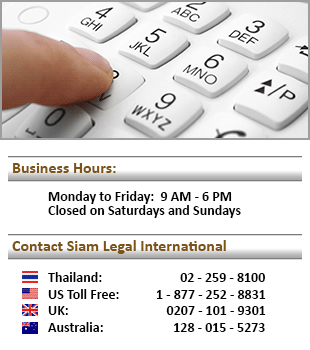Thailand Business Partnerships. Setting up a business in Thailand can be an attractive opportunity for foreign investors due to its strategic location, robust infrastructure, and dynamic economy. One of the most common ways for foreigners to establish a presence in Thailand is through a business partnership. This guide provides an in-depth look at Thai business partnerships, covering the types, legal requirements, advantages, and practical considerations to help you navigate the complexities of doing business in Thailand.
1. Types of Business Partnerships in Thailand
In Thailand, business partnerships are categorized into three main types, each with distinct legal and operational characteristics:
1.1 Ordinary Partnerships
An ordinary partnership in Thailand consists of two or more partners who jointly conduct business. This type can be either:
- Registered Ordinary Partnership: Partners register the business with the Department of Business Development (DBD), creating a separate legal entity. Partners share unlimited liability for the partnership’s obligations.
- Unregistered Ordinary Partnership: Partners do not register the business, and the partnership is not a separate legal entity. Partners have unlimited liability, and the partnership lacks legal protection.
1.2 Limited Partnerships
A limited partnership involves at least one general partner with unlimited liability and one or more limited partners whose liability is restricted to their investment in the partnership. This type must be registered with the DBD and offers a balance between management control and limited liability for investors.
2. Legal Requirements and Procedures
Establishing a business partnership in Thailand involves several legal steps and compliance with Thai regulations. Key requirements include:
2.1 Registration
- Documents Required:
- Partnership agreement.
- Identification documents of partners (passport or ID card).
- Proof of address for the business.
- Application form provided by the DBD.
- Procedure:
- Prepare and sign the partnership agreement detailing the rights and responsibilities of each partner.
- Submit the required documents to the DBD.
- Pay the registration fee and obtain the partnership registration certificate.
2.2 Foreign Ownership and Restrictions
- Foreign Business Act: Foreign investors must comply with the Foreign Business Act (FBA), which restricts foreign ownership in certain business activities. Generally, foreigners can hold up to 49% of shares in most businesses unless they obtain a Foreign Business License or invest in promoted activities by the Board of Investment (BOI).
- Promoted Activities: The BOI offers incentives for businesses engaged in promoted activities, such as manufacturing, technology, and research and development. These incentives include tax breaks and permission for higher foreign ownership.
2.3 Taxation and Accounting
- Tax Identification: Register for a tax identification number with the Revenue Department.
- Corporate Tax: Partnerships are subject to corporate income tax at the standard rate of 20%.
- Withholding Tax: Partnerships must withhold tax on payments to suppliers and contractors as per Thai tax regulations.
- Accounting Records: Maintain accurate accounting records and submit annual financial statements to the Revenue Department.
3. Advantages and Disadvantages
Understanding the benefits and potential drawbacks of different partnership structures is crucial for making an informed decision.
3.1 Ordinary Partnerships
- Advantages:
- Simplified structure and fewer formalities.
- Direct control and decision-making by partners.
- Disadvantages:
- Unlimited liability for partners.
- Limited legal protection and recognition.
3.2 Limited Partnerships
- Advantages:
- Limited liability for investors.
- Clear separation of management and investment roles.
- Enhanced legal recognition and protection.
- Disadvantages:
- More formalities and regulatory requirements.
- Potential conflicts between general and limited partners.
4. Key Considerations for Foreign Investors
Foreign investors should carefully consider several factors when entering into a business partnership in Thailand:
4.1 Choosing the Right Partner
- Due Diligence: Conduct thorough due diligence on potential partners, including their business background, financial stability, and reputation.
- Compatibility: Ensure that your business goals, values, and management styles align with those of your partner.
4.2 Legal and Financial Advice
- Consult Professionals: Engage experienced legal and financial advisors to navigate Thai regulations, draft partnership agreements, and ensure compliance with local laws.
- Cost Management: Plan for initial setup costs, ongoing compliance expenses, and potential legal fees.
4.3 Risk Management
- Liability Limitation: Opt for limited partnerships to mitigate personal liability risks.
- Exit Strategy: Develop a clear exit strategy and dispute resolution mechanism in the partnership agreement to handle potential conflicts and dissolution scenarios.
5. Case Studies and Examples
Examining real-life case studies can provide valuable insights into the practical aspects of setting up and running a business partnership in Thailand.
5.1 Case Study 1: Tech Startup
- Partnership Type: Limited Partnership
- Details: A foreign entrepreneur collaborates with a Thai partner to launch a tech startup focused on software development.
- Challenges: Navigating the Foreign Business Act and obtaining a Foreign Business License.
- Outcome: Successful registration with BOI incentives, securing higher foreign ownership and tax benefits.
5.2 Case Study 2: Manufacturing Business
- Partnership Type: Registered Ordinary Partnership
- Details: Two foreign investors establish a manufacturing business for exporting products to international markets.
- Challenges: Compliance with local regulations and managing shared liability.
- Outcome: Effective risk management through comprehensive partnership agreements and regular legal consultations.
Conclusion
Forming a business partnership in Thailand offers a strategic pathway for foreign investors to tap into the country’s vibrant market. By understanding the different types of partnerships, legal requirements, and key considerations, you can make informed decisions that align with your business goals. Thorough preparation, professional advice, and careful partner selection are essential to navigating the complexities of Thai business partnerships and achieving long-term success.


